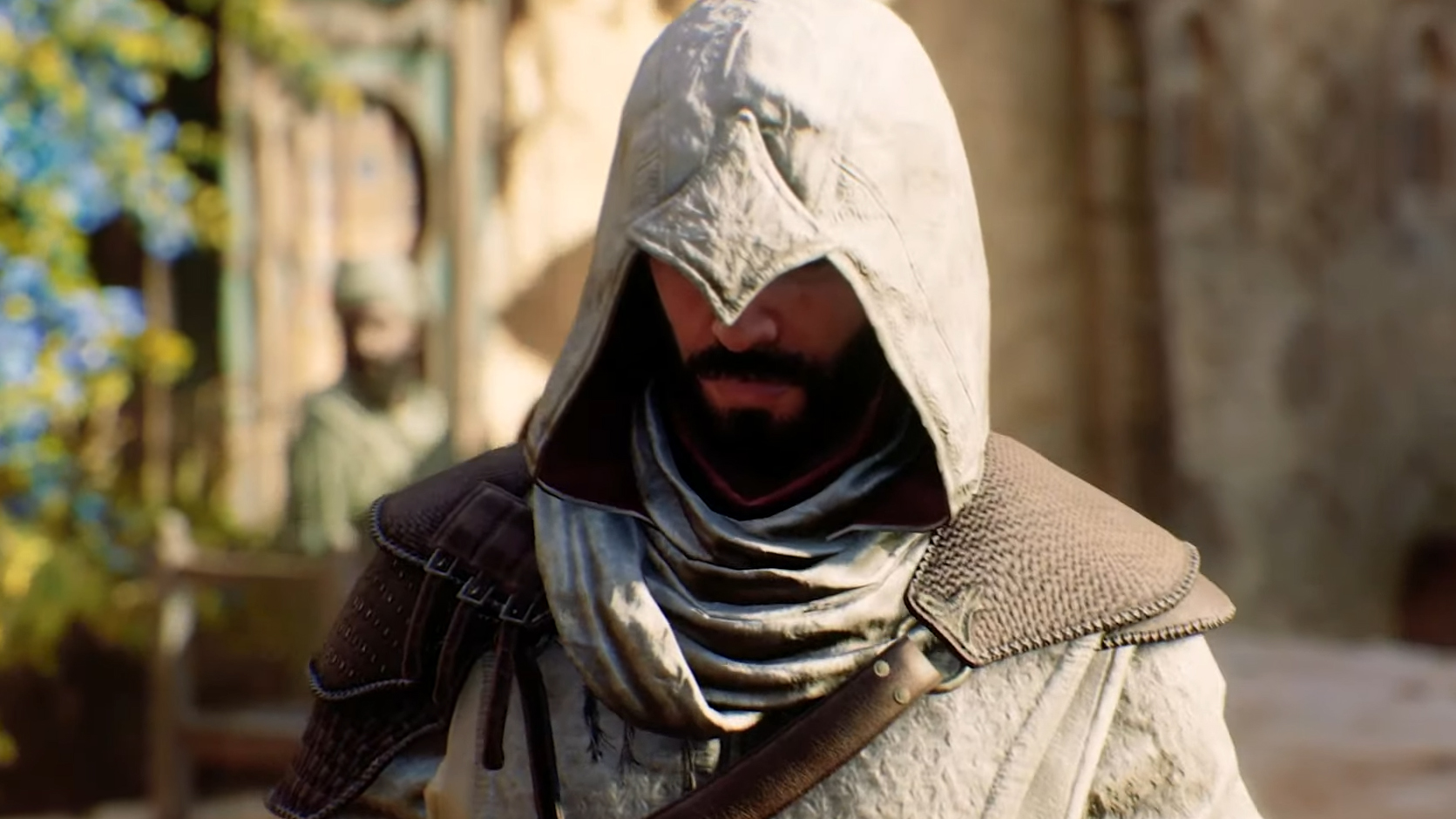Ubisoft director says gamers will get more comfortable 'not owning' games, and he's not wrong
But it's probably premature to panic over the total death of game ownership.

A comment from Ubisoft director of subscriptions Philippe Tremblay caused mild upset this week—"pirate everything from Ubisoft," one response demanded—but the hostile reaction might have more to do with general anxiety over the future of game ownership than his actual point, which didn't strike me as surprising or untrue.
In an interview with GamesIndustry.biz, Tremblay said that, for videogame subscription plans like Ubisoft+ and Game Pass to expand, gamers will need to become more comfortable with not owning games, and he implied that this is likely to happen.
"[Consumers] got comfortable not owning their CD collection or DVD collection," said Tremblay. "That's a transformation that's been a bit slower to happen [in games]. As gamers grow comfortable in that aspect … you don't lose your progress. If you resume your game at another time, your progress file is still there. That's not been deleted. You don't lose what you've built in the game or your engagement with the game. So it's about feeling comfortable with not owning your game."
Based on the negative response to that comment (which some framed as a demand from Ubisoft rather than an observation), we can safely guess that most gamers currently feel very uncomfortable with the idea of not owning the games they play. I think we're probably all fatigued by subscriptions in general—for games, movies, TV shows, music—which incentivize constant grazing, often remove stuff, and are a terrible value in cases where we just want perpetual access to a small collection of our favorite things.
And yet, I can't claim that I haven't grown comfortable relying on streaming services like Netflix and Spotify over the past 15 years, whatever my objections to them may be. (Physical media revivalists might prefer the word "complacent," but the point stands.) I don't see any reason to doubt that some larger portion of gamers will be comfortable with game library subscriptions in the future, likely including many of those who are growing up with Game Pass subs right now.
Case in point: We already got used to not owning games once before, or at least those of us who remember buying games in physical stores did. The Steam Subscriber Agreement we've all agreed to states that if you break the rules, Valve can close your Steam account without refunding your purchases.
Game ownership has also been diminished by the increasing dominance of live service games, which can be shut down, replaced, or just modified so much over time that, like the Ship of Theseus, it becomes debatable whether the original game still exists. Counter-Strike: Global Offensive was usurped by Counter-Strike 2 last year, as just one example.
The biggest gaming news, reviews and hardware deals
Keep up to date with the most important stories and the best deals, as picked by the PC Gamer team.
It probably can't hurt to voice displeasure at the thought of a subscription-based future at any opportunity—assuming, like me, it's not a future you feel optimistic about—but despite the rise in subscription offerings and Ubisoft's very likely correct prediction here, I don't think we need to panic over the total death of game ownership yet.
At least one games industry exec is skeptical about the whole thing—Take-Two CEO Strauss Zelnick has said that he's not convinced that subscriptions are ever going to supplant individual game purchasing (which is what you say when you plan to sell a bajillion copies of GTA 6 in 2025)—and none of the big publishers are so confident about subscriptions that they're willing to go all in.
"The point is not to force users to go down one route or another," Tremblay told GamesIndustry.biz. "We offer purchase, we offer subscription, and it's the gamer's preference that is important here."
There's also averseness to the idea from some prominent game developers. Larian director of publishing Michael Douse, for instance, mocked Ubisoft's observation on X. Baldur's Gate 3 notably released DRM-free on GOG.
DRM-free releases are arguably the only way to really "own" a game today, but if we accept Steam ownership as close enough, then I'm not worried right now. Steam is fundamentally a big collection of individual games for sale, and it's doing very well by all appearances. If that ever changes, I'd bet that the driving force will be stuff like Fortnite, which recently added a Lego survival game and a racing game to its modes, rather than stuff like Ubisoft+.

Tyler grew up in Silicon Valley during the '80s and '90s, playing games like Zork and Arkanoid on early PCs. He was later captivated by Myst, SimCity, Civilization, Command & Conquer, all the shooters they call "boomer shooters" now, and PS1 classic Bushido Blade (that's right: he had Bleem!). Tyler joined PC Gamer in 2011, and today he's focused on the site's news coverage. His hobbies include amateur boxing and adding to his 1,200-plus hours in Rocket League.

